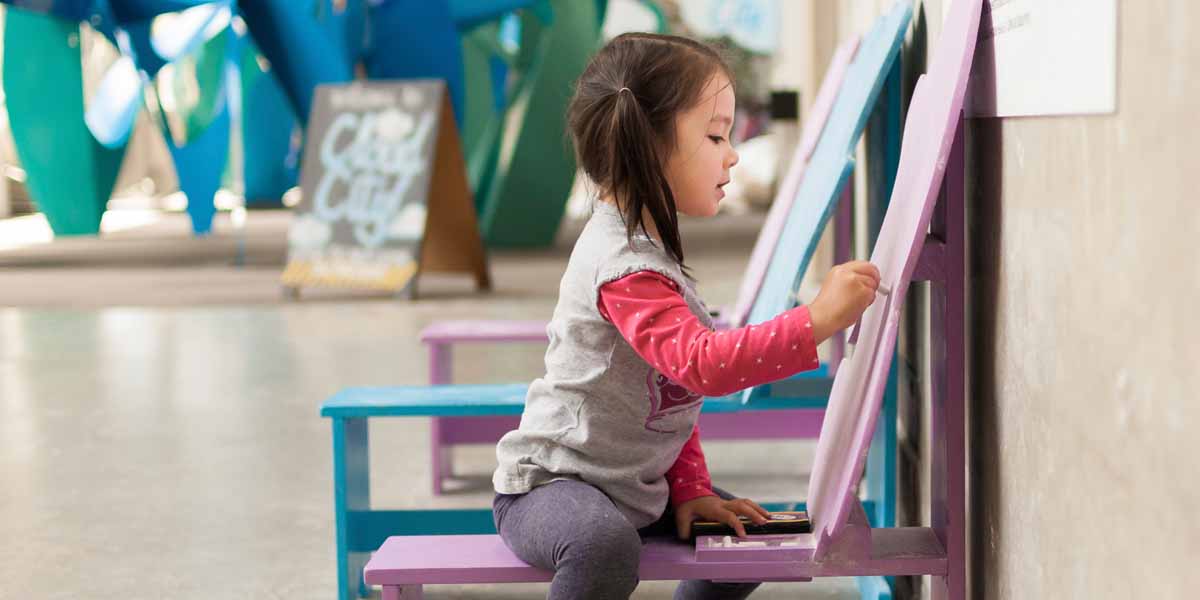Working a plot in a community garden can help you grow fresh, healthy food. It can also grow friendships and save money. Find out how.
Recognizing and supporting your gifted child
Think you might have a gifted child? Specialists explain how to recognize gifted children and how to support them along their academic path.

Do you ever find yourself marvelling at your child's curiosity and ability to soak up knowledge? Do you get the impression he or she is just quicker than other children? You could be right! Here’s how to recognize and support a gifted child.
Gifted, intellectually advanced, high-potential – there are various ways to refer to children whose intellectual development is above average. Most often, you’ll hear people talk about “giftedness.”
“A child is considered gifted when his or her intelligence quotient (IQ) is 130 or higher,” notes Marielle Potvin, a resource teacher, blogger and speaker, who has worked with gifted children and their parents. About 2% of the population fall into that category, given that the average IQ is somewhere around 100.
Signs to watch for
Every gifted child has his or her own personality, but there are certain characteristics that indicate giftedness. “When they're babies, you might notice at various stages of their development that they're ahead of other children,” explains Line Massé, a professor in the psychoeducation department at the University of Quebec Trois-Rivières and a specialist in giftedness. “They're the kids who are very alert, taking in everything in their environment, and they're quick to learn how to handle objects with ease.” Gifted children may also start walking and talking earlier than their peers.
“Some are farther ahead when it comes to language,” continues Massé. “They have a very rich vocabulary; sometimes they're able to read before they start kindergarten. Others are very skilled with numbers and can do mental arithmetic even before they're taught how to in school.”
Gifted kids are also very curious, adds Potvin. “Their questions go way beyond the usual 'why.' At age 4, they might be asking existential questions about life after death. These children often develop an intense interest in certain subjects, such as astronomy, dinosaurs, or insects. But they aren't just interested, they're always trying to learn more.”
“Another important characteristic to note is ‘asynchrony,’” says Massé. This refers to the gap between the advanced intellectual development of gifted children and their social and emotional development, which proceeds at a normal pace. “A teacher may think it strange that a particularly bright student is crying just because his friend stuck his tongue out at him,” says Potvin. The fact is, giftedness does not necessarily equal maturity – high-potential children can also be hypersensitive children who feel they are different from everyone else.
Confirming giftedness
The best way to confirm giftedness in a child is to have an assessment done by a psychologist. The tests used for evaluating intelligence were developed by American psychologist David Wechsler. They include the WPPSI (Wechsler Preschool and Primary Scale of Intelligence) for children from 2 ½ to 6 years of age, and the WISC-IV (Wechsler Intelligence Scale for Children) for those ages 6 to 16. These tests determine IQ using a set of exercises that measure reasoning, verbal comprehension and memory.
Supporting a gifted child
If your child is gifted, you’ll have to take it into account throughout his or her school career because, contrary to popular belief, gifted children are not always at the top of the class. In France, it's estimated that 30% of such children have problems at school, mainly because they find school boring and so lose interest in it.
“There's no need to be overly concerned, though,” says Massé. “Most of them will do just fine.” Sometimes the home environment provides enough stimulation. And gifted children often find an outlet for their talents in extracurricular activities such as music. For these children, finding school easy and being able to do their homework quickly is a plus that allows them to devote more time to the things they're passionate about.
“Parents have to listen to their children and respond to their needs if they keep saying that they aren't learning anything at school, they're bored or they have no friends,” explains Massé. In such a case, one possibility might be to see if the child could skip a grade, by going directly into Grade 1, for example. A psychological assessment is recommended in that situation, as it's important to make sure the child has the necessary emotional capacity.
“You could also choose a school that offers a more challenging curriculum in areas such as science, music or sports,” continues Massé. “You have to look at what best meets the needs of your child.” Some will do better in an open school, such as an alternative school, while others will prefer the more structured setting of a private school. “It depends on the child's sensitivity and personality,” adds Sylvie Regnier, cofounder of the association Haut potentiel Québec, which provides a place for parents of gifted children to share information. “The key is keeping the lines of communication open with the school and the teacher,” she says. As an example, in a regular school, it's sometimes possible for a gifted child to take part in enrichment activities once his or her classroom work is finished.
Regnier points out that, generally speaking, the role of parents with high-potential children is no different from that of any other parents: to listen to their children. Rather than push young children who are gifted, the idea is to support them and nourish them in their interests and passions.
For more information
- Mensa Canada
- Association for Bright Children Ontario
- Teaching Gifted Kids in the Regular Classroom, by Susan Winebrenner. 2008


